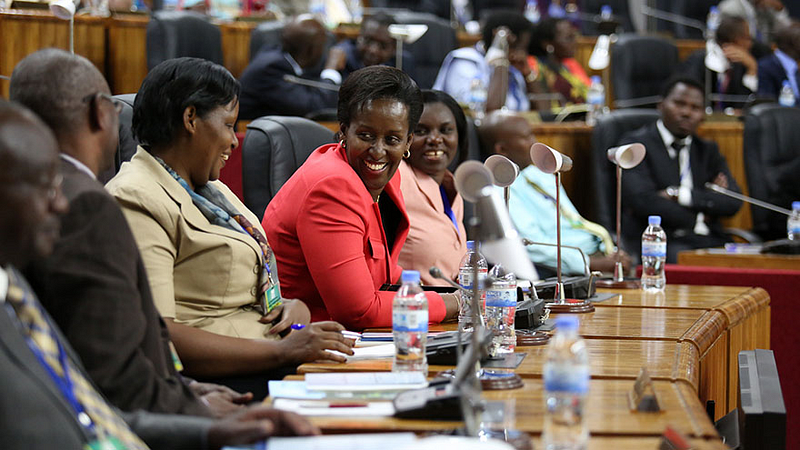Rwanda: A Leader in Gender Equality
Highlights from the World Economic Forum’s Global Gender Gap Report 2016
For women and girls, Rwanda is one of the best countries in the world to live in when it comes to equality in education, health, income and political influence, as concluded in the World Economic Forum’s latest Global Gender Gap Report for 2016.
No other country in the world has as many women represented in politics as in Rwanda. With 64% of the seats in parliament occupied by women, Rwanda is a role model for the world when it comes to female leadership and political inclusion. Thus, Rwanda has now been ranked fifth in the world when it comes to gender equality in the latest Global Gender Gap Report, measuring that status of gender equality in 144 countries.

A photo from Umushyikirano — National Dialogue Council 2013, Rwanda Parliament. Source
While women’s political participation in Rwanda has made headlines worldwide, there are also several other reasons why Rwanda is ranked so high this year, bypassing countries including America, Germany, and the UK.
Recommended Reading: The Marriott Kigali Hotel Opens With Dozens of Akilah Grads on Staff
With respect to economic participation and opportunity for women, Rwanda has significantly approved in recent years, and women in Rwanda now make salaries that are closer to men’s average salaries than any other country in the world. Women in Rwanda earn 88% of what their male counterparts earn — which gives Rwanda the lead in front of all other 143 countries in the ranking. In comparison, women in the U.S. only make 65% of the salaries men do.
Rwanda is the only African country placed in the top ten of the global ranking, alongside four Scandinavian countries, the Philippines, Slovenia and Ireland. Notable, the United States and Australia both scored low on political empowerment and health of women and girls.
Education Gap
But there’s still room for improvement. Rwanda has the most opportunity for growth when it comes to women’s access to higher education. While primary and secondary education have been made equally accessible to both men and women in Rwanda, making Rwanda a pioneer among developing countries, the report has still identified a large gap when it comes to tertiary education. For every 100 men and boys enrolled in tertiary education, there are only 79 women and girls enrolled.
With Akilah’s focus on providing high quality, market-relevant education to women, we are working actively to bridge that gap. By providing women with the skills and knowledge to take on leadership roles in their careers and communities, we continue to advocate for the need to make higher education accessible to women and girls of all socioeconomic levels in Rwanda.
Read the full report here.
